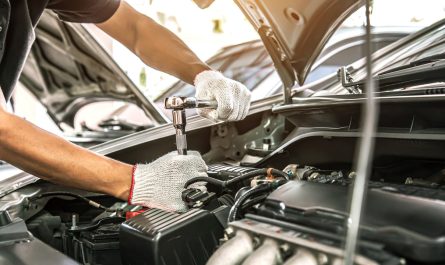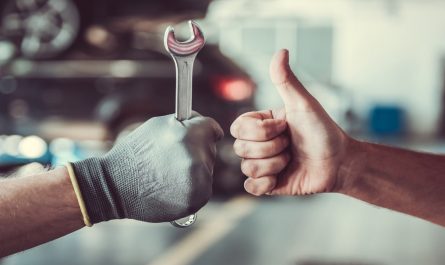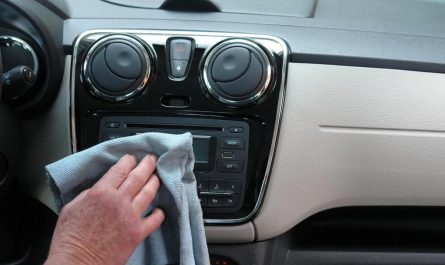Neglecting Regular Maintenance
Proper vehicle maintenance ensures optimal performance, longevity, and safety. Many vehicle owners often overlook regular maintenance routines, which can lead to significant issues down the road. Critical maintenance tasks such as oil changes, filter replacements, and tire rotations are essential for keeping a vehicle in peak condition. Regular oil changes, for instance, help maintain engine health by preventing sludge buildup, which can otherwise lead to costly repairs.
Filters, including air and oil filters, also require frequent attention. Dirty filters can restrict airflow and diminish engine efficiency, adversely affecting fuel economy. Furthermore, neglecting tire rotations can result in uneven tire wear, potentially compromising vehicle handling and safety. By adhering to a regular maintenance schedule, vehicle owners not only enhance performance but also contribute to the longevity of their vehicles.
As the consequences of neglecting maintenance can be severe, implementing strategies to ensure these tasks are performed regularly is vital. One practical approach is to establish a maintenance reminder system. Various digital applications and automotive service platforms can send notifications for upcoming services, taking forgetfulness out of the equation. Additionally, maintaining a detailed service log can aid in tracking what maintenance has been done and when future services are due.
By prioritizing proper maintenance, vehicle owners can avoid the drawbacks associated with neglect, ultimately promoting a safer and more reliable driving experience. Regularly scheduled maintenance should be viewed as an investment in the vehicle’s future performance and safety. Ensuring that these essential tasks are completed will mitigate risks and enhance the vehicle’s overall durability and functionality.
Ignoring Warning Lights and Alerts
One of the most critical aspects of vehicle maintenance is paying attention to warning lights and alerts displayed on the dashboard. These lights serve as indicators for various systems within the vehicle, signaling potential issues that require immediate attention. Common warning alerts include the check engine light, oil pressure warning, battery alert, and temperature gauge warning, among others. Each indicator signifies different problems, ranging from minor issues to severe malfunctions that could jeopardize safety.
Ignoring these warnings can lead to escalated damage and costly repairs. For instance, a check engine light may indicate an issue with the vehicle’s emissions system or performance; neglecting it could result in significant engine damage over time. Similarly, an oil pressure warning suggests that the engine is not getting sufficient oil, which can lead to overheating and catastrophic failure if left unaddressed.
When you notice a warning light illuminated on your dashboard, it is essential to consult the owner’s manual for specific guidance on the alert. Depending on the severity of the light—such as whether it is a warning or an indicator—you may need to take varying courses of action. Some alerts may merely require a routine check, while others may necessitate immediate professional examination. If uncertain, contacting a qualified mechanic can clarify and ensure proper precautions are taken.
Ultimately, staying vigilant about dashboard alerts extends your vehicle’s lifespan and enhances your safety on the road. Regular monitoring and timely responses to these warning signals empower vehicle owners to make informed decisions and prevent problems from becoming major issues. Assessing and addressing the implications of warning lights is a responsibility that every vehicle owner must undertake seriously to ensure optimal vehicle performance.
Overlooking Tire Care
Tire maintenance is a critical aspect of vehicle care that owners frequently underestimate. Regular attention to tire health can significantly enhance not only the performance of the vehicle but also ensure the safety of its occupants. One of the critical components of tire maintenance is monitoring tire pressure. It is advisable to check tire pressure at least once a month and before long journeys, as properly inflated tires can improve fuel efficiency and handling. In contrast, under-inflated tires may lead to uneven wear and increase the risk of blowouts.
Equally important is the practice of aligning and rotating tires. Over time, tires can wear unevenly due to factors such as misalignment or improper balancing. By rotating tires at regular intervals—typically every 5,000 to 7,500 miles—vehicle owners can extend tire lifespan and enhance performance. Moreover, alignment checks should be performed as needed, mainly if the vehicle pulls to one side or the steering wheel appears off-center. This proactive approach can prevent excessive wear and potential safety hazards.
Tread depth is another critical factor in tire care. Tires with worn treads can severely compromise traction, especially in adverse weather conditions. It is essential to regularly inspect tread depth and replace tires that exhibit excessive wear, typically indicated by a tread depth of 2/32 of an inch or less. Using the penny test, inserted into the tire tread with Lincoln’s head facing down, can help gauge tread depth effectively.

Inadequate tire maintenance can lead to numerous issues, including diminished fuel efficiency, a greater risk of accidents, and the need for more frequent tire replacements, which can be financially burdensome. Therefore, establishing a routine that includes tire pressure checks, regular rotations, alignments, and tread inspections is vital in maintaining vehicle safety and efficiency.
Top 7 Mistakes to Avoid When Maintaining Your Vehicle
Forgetting About Fluid Levels
One of the most critical aspects of vehicle maintenance is the regular check and management of fluid levels. Various fluids, including engine oil, coolant, brake fluid, and transmission fluid, are essential for a vehicle’s proper functioning. Neglecting to monitor these fluid levels can lead to significant mechanical issues and ultimately compromise the safety and performance of the car.
For instance, engine oil lubricates the engine’s internal components, reducing friction and preventing overheating. Low oil levels can result in engine wear and, in severe cases, engine failure. Monitoring the oil level involves checking the dipstick, and it is recommended to perform this task every few weeks or before long journeys.
Coolant is another vital fluid; it keeps the engine from overheating while protecting against freezing temperatures. An inadequate coolant level can lead to overheating, which may cause severe engine damage. It is advisable to check coolant levels monthly and top them off as necessary. Remember to use the appropriate mixture of coolant and water, as specified in the vehicle’s owner’s manual.
The brake fluid plays a crucial role in the vehicle’s braking system. Low brake fluid levels can result in a squishy brake pedal, which could significantly impair braking efficiency. Checking brake fluid levels should become a routine part of your vehicle’s maintenance schedule. Similarly, transmission fluid is crucial for smooth gear shifting and overall transmission performance. Drivers should routinely inspect this fluid level, especially if they notice any issues with shifting or unusual noises during operation.
Quality fluids tailored for your vehicle can significantly enhance performance and longevity. Regularly checking and maintaining appropriate fluid levels ensures optimal vehicle operation and promotes overall safety on the road. Therefore, keeping a calendar of when to check and replace these essential fluids is an effective way to avoid overlooking this fundamental aspect of vehicle care.



